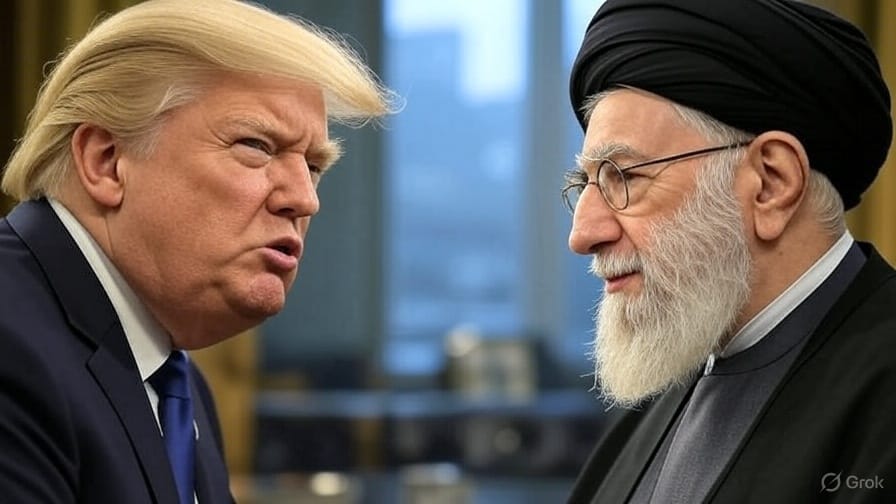- Shortlysts
- Posts
- Trump Administration Takes Harsher Stance Towards Iran
Trump Administration Takes Harsher Stance Towards Iran
Trump Administration adopts a harsher tone towards Iran, demanding unconditional surrender.

What Happened?
In recent days President Trump has shifted towards a harsher stance on Iran, first by demanding Iran’s unconditional surrender and second by publicly hinting the U.S. may join Israel in striking Iranian nuclear facilities.
On a social media post, President Trump said, ‘we have complete and total control of the skies over Iran,’ raising questions about whether the U.S. was directly involved in combat operations. Pentagon spokesmen have repeatedly said the U.S. military is in a defense posture only in the Middle East, not actively attacking targets inside Iran.
Why it Matters
If the U.S. joined Israel in attacking targets in Iran it would represent a significant escalation of the war. There are some 40,000 U.S. military personnel in the Middle East and nearly all of them are within range of Iranian missiles. While major U.S. installations likely have missile defense capabilities similar to Israel’s Iron Dome, many of the smaller bases do not, making them particularly vulnerable to missile attack.
Direct U.S. military involvement in strikes against Iran would likely result in Iranian attacks on U.S. bases and ships in the Middle East. While U.S. public opinion is firmly against entering the war, the deaths of U.S. military members at the hands of Iranian missiles could change public opinion rather quickly. U.S. military doctrine would require retaliation against Iranian missile facilities to prevent further attacks, which would in turn trigger more Iranian strikes, creating a chain of escalation that could easily spiral out of control.
At the same time, the harsher tone by the Trump Administration could also be a political ploy to intimidate Iran into capitulating. While President Trump has left open the possibility of continued negotiations, Iran’s Supreme Leader has said negotiations are over, and ‘war will be met with war.’ But Iran’s Foreign Minister has also said Iran will stop launching attacks if Israel does the same, meaning the conflict could end as abruptly as it started.
At the heart of U.S. military involvement is the use of bunker busting bombs which most experts agree would be required to destroy Iran’s underground nuclear research facilities. Iran’s Fordow facility, located about one hundred miles south of Tehran, is built into a mountain similar to the way the U.S. NORAD facility is constructed. Because Fordow is deep underground and built into a mountain, it is unclear whether even bunker buster bombs would be effective.
An ineffective strike by the U.S. on Fordow would be a worst of all possible outcomes, because it would trigger war with Iran without destroying their key nuclear facility. That risk will have to be weighed by the Trump Administration in the coming days as President Trump decides whether or not to attack Iran directly.
How it Affects You
Iran killed and maimed hundreds of American military personnel during the Iraq War and has sponsored terrorism throughout the Middle East for decades. But the chance to the destroy the current Iranian regime must be weighed against the risks, which not only include the potential loss of life but also the potential for the Arab world to unite against Israel and the U.S.